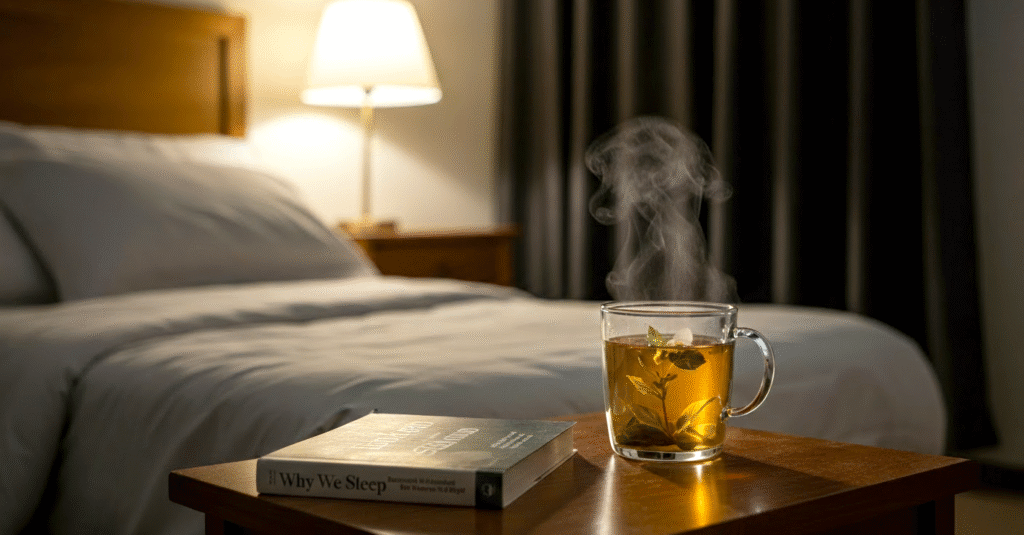Why Sleep Hygiene Matters More Than You Think
Picture this: you’re lying in bed at 2 a.m., staring at the ceiling, bargaining with your brain — “If I fall asleep now, I’ll still get 5 hours of rest!” Sound familiar? You’re not alone. Millions struggle with falling asleep, staying asleep, or waking up groggy — even after what should have been a “full night.”
That’s where sleep hygiene comes in. No, it’s not about brushing your teeth while wearing pajamas (though, keep doing that!). Sleep hygiene refers to the set of healthy habits, routines, and environmental tweaks that can dramatically improve your sleep quality.
In this guide, you’ll learn:
- What sleep hygiene is and why it matters.
- Step-by-step bedtime routines that actually work.
- Common mistakes that sabotage quality rest.
- Science-backed tricks to help you fall asleep faster.
- FAQs on sleep, insomnia, naps, and bedtime habits.
By the end, you’ll have a personalized strategy to not just sleep more — but sleep better.
What Exactly Is Sleep Hygiene (And Why Should You Care)?
At its core, sleep hygiene is the practice of creating an environment and set of daily habits that promote consistent, restorative sleep. Just like dental hygiene prevents cavities, sleep hygiene prevents exhaustion, burnout, and long-term health risks such as:
- Weakened immune system
- Poor concentration and memory issues
- Mood disturbances (ever been “hangry” but with sleep?)
- Increased risk of heart disease and diabetes
The goal isn’t perfection but consistency. A few intentional adjustments in your day can transform how rested you feel tomorrow morning.
How Does Sleep Hygiene Improve Sleep Quality?
Think of your brain like a smartphone: it needs to recharge. But if you plug your phone into a broken cable or try charging it while dozens of apps are running, you’ll wake up with only 40% battery.
Good sleep hygiene gives your body a clear signal: “It’s time to power down now.” Over time, this lowers sleep latency (the time it takes to fall asleep), improves sleep depth, and makes waking up easier.
Key mechanisms at work:
- Circadian Rhythm Regulation – Your body’s internal clock learns when to release melatonin.
- Sleep Pressure Management – A balance between wakefulness-promoting neurotransmitters and sleep-inducing chemicals.
- Environmental Conditioning – A cool, dark, quiet room cues relaxation subconsciously.
Fun fact: Studies show people who maintain strong sleep hygiene report higher daytime alertness even if their total sleep hours were less than peers with poor sleep hygiene. Quality > quantity.
What Is the Best Bedtime Routine for Better Sleep?
A bedtime routine is like a landing strip for your brain — it guides you from full throttle to gentle touchdown. Here’s a step-by-step bedtime ritual backed by science and practicality:
1. Wind Down (60–90 minutes before bed)
- Dim lights (signals melatonin release).
- Disconnect from major screens (blue light tricks your brain into “daytime mode”).
2. Gentle Relaxation Activities
- Reading a physical book (soft light, nothing too thrilling).
- Journaling to “brain-dump” lingering thoughts.
- Light stretching or yoga poses like child’s pose or legs-up-the-wall.
3. Set the Sleep Stage
- Cool the room (optimal range: 60–67°F / 15–19°C).
- Blackout curtains or an eye mask.
- White noise or calming sounds.
4. Anchor Sleep & Wake Times
Consistency is king! Go to bed and wake up within 30 minutes of the same time daily — weekends included. Yes, that means breaking up with your late-night Netflix binge (sorry!).
What Common Mistakes Ruin Sleep Hygiene?
Even small missteps sabotage great sleep. Here are biggest culprits:
- Caffeine after 2 p.m. (yes, that innocent 4 p.m. latte haunts 2 a.m. you).
- Irregular sleep timing (all-nighters + catch-up naps confuse your body clock).
- Overusing bed for non-sleep activities (scrolling TikTok trains your brain to think bed = entertainment zone).
- Alcohol before bed (may knock you out quickly, but disrupts deep REM cycles).
- Overthinking sleep itself (lying awake worrying about not sleeping is… ironically the worst insomnia trap).
How Can I Fix My Sleep Environment?
Your bedroom matters more than you think. Here’s a Sleep Environment Checklist:
| Factor | Ideal Condition | Why It Matters |
|---|---|---|
| Temperature | 60–67°F (15–19°C) | Cooler temps trigger drowsiness hormones |
| Light | Total darkness or eye mask | Darkness boosts melatonin |
| Sound | Quiet or steady white noise | Masks disruptive sounds |
| Mattress & Pillow | Comfortable + supportive | Reduces tossing/turning |
| Bedding | Breathable cotton/linen | Prevents overheating |
What’s the Role of Exercise, Diet, and Stress in Sleep Hygiene?
Exercise:
- Regular physical activity improves slow-wave (deep) sleep.
- Best window: morning or afternoon. Avoid vigorous workouts within 2 hours before bed.
Diet:
- Balanced meals with lean proteins and complex carbs help nighttime hormone production.
- Avoid heavy meals, spicy food, and alcohol before bedtime.
- Caffeine cutoff: at least 6–8 hours before sleep.
Stress Management:
Stress = cortisol = your sleep enemy.
Helpful pre-sleep stress fighters:
- Guided meditation apps
- Breathing exercises (4-7-8 method)
- Gratitude journaling
FAQs About Sleep Hygiene and Better Sleep
1. What is the quickest way to fall asleep?
Use the 4-7-8 breathing technique: inhale for 4 seconds, hold for 7, exhale for 8. It lowers heart rate and invites drowsiness.
2. Is it bad to nap during the day?
Not if you keep it short (20–30 minutes) and before 3 p.m. Longer or late naps disrupt nighttime sleep.
3. Should I take melatonin supplements?
Melatonin may help short-term (jet lag, shift work), but it’s not a cure-all. Prioritize natural sleep hygiene before relying on supplements.
4. Why do I wake up at 3 a.m. every night?
Common culprits: stress spikes, alcohol, sleep apnea, or irregular circadian rhythm. Improving sleep hygiene reduces these wake-ups.
5. How much sleep do adults really need?
Most need 7–9 hours. Sleep quality matters as much as duration. Waking refreshed is the ultimate benchmark.
6. What’s the difference between insomnia and poor sleep hygiene?
Insomnia is a clinical sleep disorder; poor sleep hygiene is about habits/routines that are fixable. If insomnia persists after hygiene fixes, consult a sleep specialist.
Final Thoughts: Building Your Best Sleep Life
Improving sleep hygiene isn’t about perfection or buying the fanciest weighted blanket. It’s about building small, repeatable habits that tell your brain and body, “It’s safe to rest now.”
Start simple: dim the lights an hour before bed, cut caffeine after lunch, and keep a consistent sleep schedule. Layer new habits gradually, and your future self will thank you every bright, refreshed morning.
Now it’s your turn: pick one tip from today’s guide and try it tonight. Then share your results — because good sleep isn’t just personal, it’s something worth spreading (minus the snoring!).

